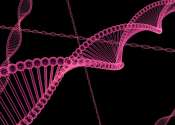New immune system-targeting compound shows early promise in treating lupus
Scientists from Scripps Research have developed a small molecule that blocks the activity of a protein linked to autoimmune diseases, including systemic lupus erythematosus (SLE) and Crohn's disease. This protein, known as ...
Jan 11, 2024
0
46









